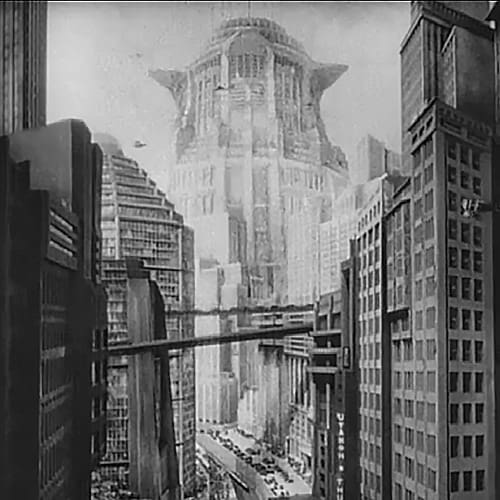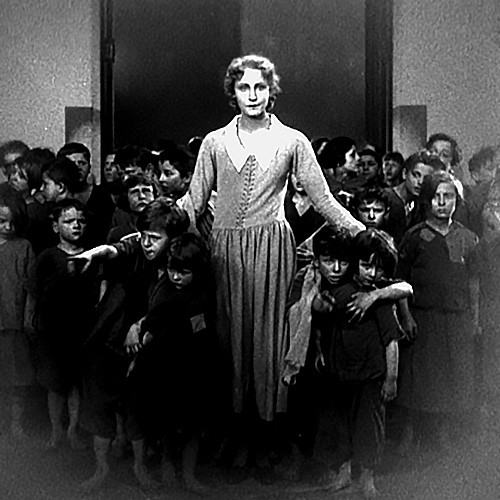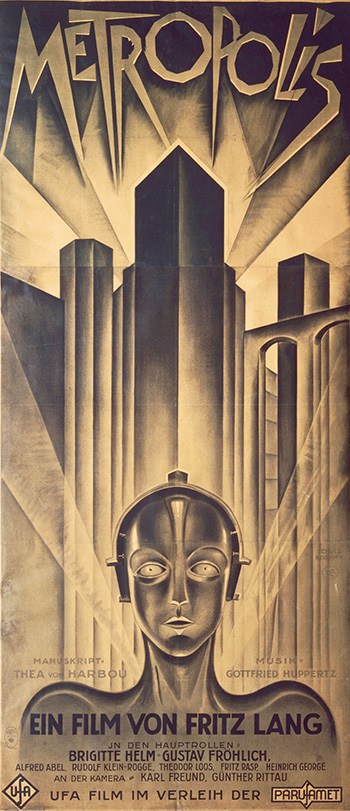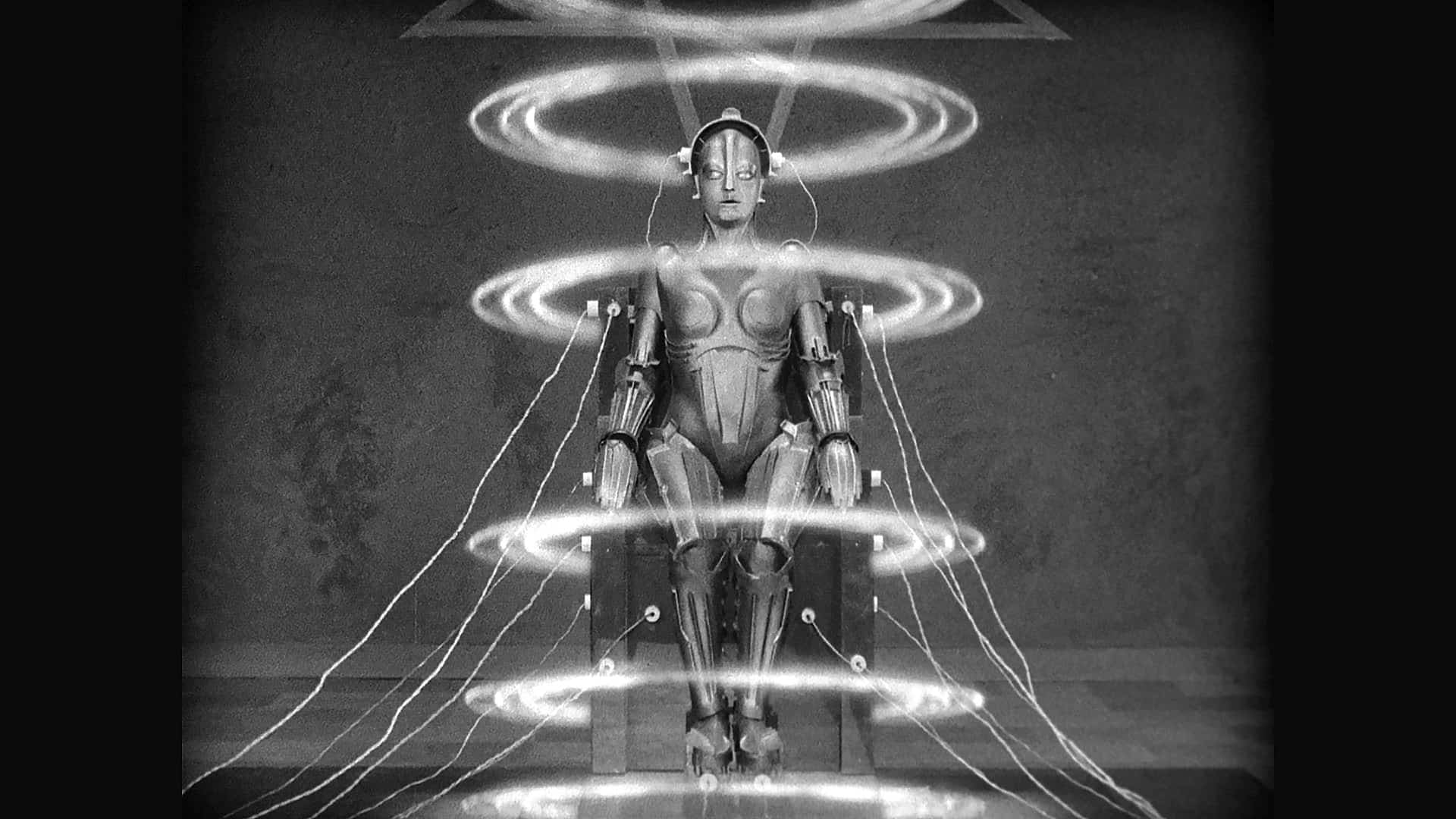
A dystopic future in which the rich and privileged live in a shining city on a hill while the masses suffer to maintain the lifestyle of the few is a common theme in science fiction. But 90 years ago Fritz Lang created much of the framework in his seminal 1927 film Metropolis.
The restored version of the work will be screened tonight (Thursday) as the VOC Silent Film Harmonic caps its tenth anniversary season at the Registry Theatre in Kitchener. The group’s members will provide live musical accompaniment as the movie plays.
Metropolis portrays a highly industrialized and contradictory future in which the rich reign from high-rise tower complexes, while the lower class of underground-dwelling workers toil constantly to maintain the luxurious lifestyle of the upper class.
One of the elites is Freder Fredersen, the son of Joh Fredersen, the city’s master. One day, Freder spots a beautiful woman (Maria) with a group of children who quickly disappear. He follows and is horrified to find an underground world of workers who operate the machinery that keeps the world above functioning. Maria tries to save workers and inspire Freder to be a mediator between the workers and the rich masses who control the city. Meanwhile, Joh Fredersen finds out about Maria’s influence on the workers and orders Rotwang, a scientist, to create a robotic copy of her in order to send it to the underground city to deceive and stir up the workers

Not the first to tackle some of the themes, Metropolis was groundbreaking in its length and scope. Many of themes in the 90-year-old film are still very much relevant today, perhaps more so than ever.
There are some political issues at play. Though accused of being pro-communist, that wasn’t necessarily the case with director Fritz Lang, said Harms.
The story really reflects its time – the Gilded Age – and its place – Germany between two world wars.
“There was a lot going on politically in Europe at the time.”

The film went beyond science fiction, drawing on mythical and biblical stories, notes VOC’s Ted Harms, pointing to the parallels to the Tower of Babel.
“The city is organized by some high-minded people, but it was the blood of slaves that actually built it,” he said.
This is not simply a Buck Rogers tale.
For the screening, VOC is using the latest restoration of Metropolis – the first film to be inscribed on UNESCO’s Memory of the World Register – which runs two and a half hours
“It’s the longest one we’ve done yet,” he said. “But we’re ready. We’re pumped.”
Harms notes that silent films were often accompanied by different music in different locations
“Imagine going to see the new Avengers film in Kitchener tonight and then going to see it again in Hamilton tomorrow and hearing a completely different soundtrack.”
The shifting nature of musical accompaniment gives the group a great deal of flexibility, though there is a score that dates back to its release.
“There really wasn’t a soundtrack to many of the silent films, though the blockbusters of the time did come with scores,” he said. “The larger theatres had orchestras, but that wasn’t the case everywhere.
“What we have is pretty much carte blanche.”
The VOC Silent Film Harmonic takes a collective approach to devising a soundtrack.
“We improvised the music on stage, though by then it’s pretty much planned,” he laughed.
The goal is to “reflect the movie” in the musical choices.
Though a science fiction work with robots, the movie predates electronic music, for instance.
Prior to the show, there will be a talk on the film by University of Waterloo history professor Andrew Hunt.
The VOC Silent Film Harmonic presentation of Metropolis is set for May 3 at 8 p.m. at the Registry Theatre, 122 Frederick St., Kitchener. Tickets are $18 ($12 with a food bank donation) available www.registrytheatre.com or by calling 519-578-1570.









